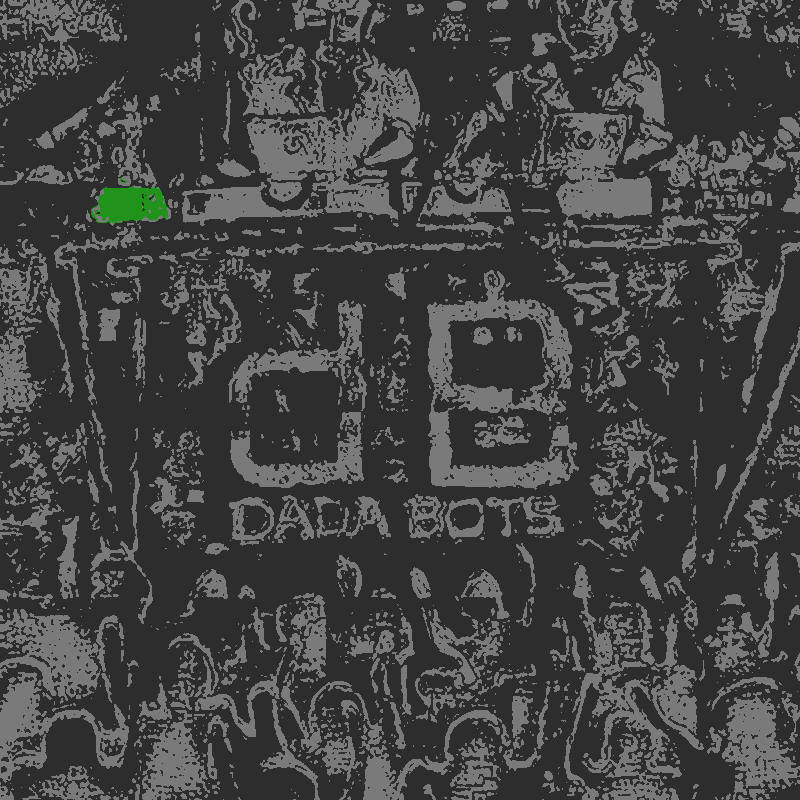
We have music genre to categorize and identify music as belonging to a shared tradition or set of conventions, to distinguish one from another musical style.
To name a few, for example, we have Country. Electronic, Hip Hop, Jazz, Pop, R&B and Rock. And for the last, it includes a sub-genre called Death Metal, which can be described as extreme heavy metal that typically employs distorted and low-tuned guitars.
Highlighting deep growling vocals, aggressive powerful double-kick drumming, abrupt tempo and chromatic chord progressions, Death Metal can be considered as a complex and brutal music.
Not every musician and band can create the characteristics of the genre's thick and massive sound. But this AI somehow manages that.
Dadabots was developed by two music technologists who wanted to prove that AI can also capture and create music, and in this case, create songs from Death Metal, Math Rock, and other lesser-known genres.
Related: Dadabots, The First Artificial Intelligence Band That Created Heavy Metal Music
Created by CJ Carr and Zack Zukowski, the pair technologists use deep learning algorithm to listen to Psyopus’ Ideas of Reference, 29 times over the course of several days before recreating an similar version that captures the musical elements of the original.
According to them, the AI “learns” the patterns by feeding in a large amount of input data (in this case, Death Metal) in order to predict what musical elements and sequences are most common and recreates them.
In details, the pair explained on their 2017 paper, saying that they started by feeding the AI model short segments of music, a few seconds at a time. As this training goes on, the AI eventually learns the characteristics identifying features and started producing more and more detailed samples, including riffs and sectional transitions.
In the paper, Carr and Zukowski wrote that initially, they were surprised by the result.
"While we set out to achieve a realistic recreation of the original data, we were delighted by the aesthetic merit of its imperfections," they wrote. "Solo vocalists become a lush choir of ghostly voices, rock bands become crunchy cubist-jazz, and cross-breeds of multiple recordings become a surrealist chimera of sound."
Dadabots has released several albums, and with that, its creators also created it its own YouTube channel where the AI can livestream its Death Metal scream to the top of its digital lungs for 24 hours, 7 days non-stop. The music that the livestream is based on is a Vancouver-based technical death metal band called Archspire.
Carr and Zukowski characterize their work with Dadabots as working towards “eliminating humans from black metal.”
For each project, they have Dadabots analyze "subsets of a single artist’s discography,” and work off of it to create its own work.
“Most nets we trained made shitty music. Music soup. The songs would destabilize and fall apart. This one was special though,” said Carr.
The Archspire-inspired Dadabots created much more consistent, stable music. And according to Carr’s guess, that is because Archspire’s music is played at such a high tempo, which stabilizes what the bot puts out.
The results are not totally human. The vocals are very distorted and gibberish, with rhythm that is way too aggressive. What's more, it has no pause for a vocal's breather, and the guitar riffs are at speeds most people couldn’t achieve.
But still, it's very convincing, especially to those with untrained ears and those who aren't into the Heavy Metal genre.
Carr and Zukowski on their paper stated that “While we set out to achieve a realistic recreation of the original data, we were delighted by the aesthetic merit of its imperfections.”
AI and machine learning models have already been used as a medium to generate convincing imitations of art. For example, researchers have created AI capable of creating nude arts, an AI capable of creating art exhibits, an AI creating glitch-art videos, imaginary people and even realistic portraits and convincing fake faces.
Taken these examples and advancements into context, AI with its machine learning and deep learning technologies in composing music is only a natural evolution.